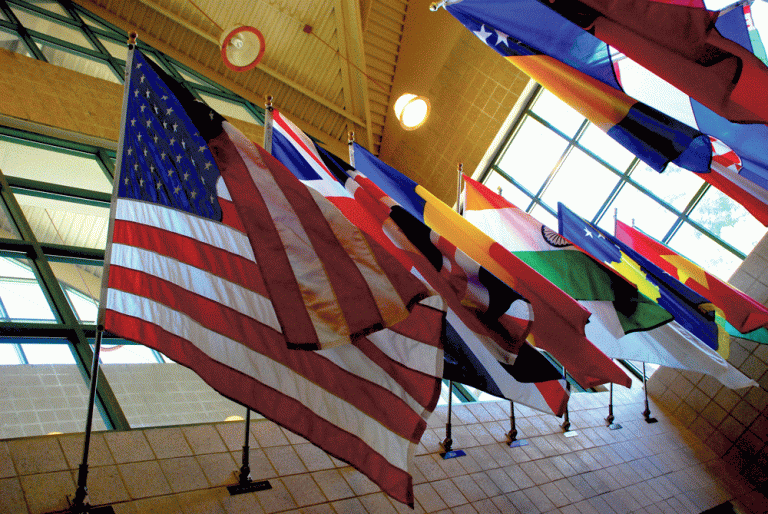
Ethan Jones
In recent months, crowds of sign wielding protesters gathering and chanting around Storke Plaza and in other parts of campus has become a familiar sight. Whether it be demanding the UC divest from DAPL, marching against the immigration ban, or being in general disdain of the new president, the frequent protesting has become a spectacle to few and business as usual to most.
But what are the opinions of those still new to the country? What are their impressions of current politics and the response by the UCSB student body?
“If I’m in France and I wanna go to Italy, I’d just fucking drive,” said third year Communication major Marc Savoureux, an international student from France. “Trump says he wants to build the wall, and it’s not the right thing.”
Savoureux explained further that he felt his impact in the manner in which students protest at UCSB wouldn’t create anything lasting. Like Savoureux, other international students have strong opinions on the current administration, as well as UCSB’s political approach.
The lack of effectiveness of UCSB protests was echoed by his other colleagues. Third year Chih-hsuan Tsai, an international Film and Media studies student from Taiwan, admitted that he normally doesn’t feel too involved in politics or protesting because he’s international, but felt uneasy of the future.
“After I graduate, can I get a job?” he said. “If it’s even possible for me to stay here and keep working?”
Tsai noted a shared sentiment of uncertainty among him and his friends about their future as students, and how they felt their education was threatened. When it came to taking action he was just as unsure.
“I don’t know if protesting on campus really works, cause America’s such big country, does anyone really care?” Tsai went on to explain that though he didn’t condone the actions at Berkeley, it still created media attention. “Make it bigger,” he said, “if you want it to be seen.”
The “bigger is better” protest philosophy wasn’t shared by all, as fourth year Economics student from Hong Kong, James Chiu gave his opinions.
“I feel like the liberal side is getting crazy right now,” Chiu said in regards to the Berkeley protest. “They’re not letting people express their opinion and I think that that’s totally wrong.” He clarified that though he didn’t support President Donald Trump, but he felt like this wasn’t the way to approach the political situation.
Chiu drew comparisons to the complicated political climate of Hong Kong, describing how the Chinese government suppresses self expression and activism, and how the actions taken in Berkeley underline the same censoring philosophy.
“I think that if you want to have a real diverse society you have to have both left and right talk to each other, but not like breaking down doors and provoking police,” he said.
Though the opinions may have differed on whether the protests should be more effective or constructive, there was a tone of distrust about the current administration. The Office of International Students and Scholars echoed the same sentiment on their website, urging students not to travel and keeping up on the process of Trump’s executive decisions.
President Janet Napolitano and the Chancellors of the University of California released a statement regarding Trump’s executive order on immigration, stating, “It is critical that the United States continues to welcome the best students, scholars, scientists, and engineers of all backgrounds and nationalities. We are committed to supporting all members of the UC community who are impacted by this executive action.”










